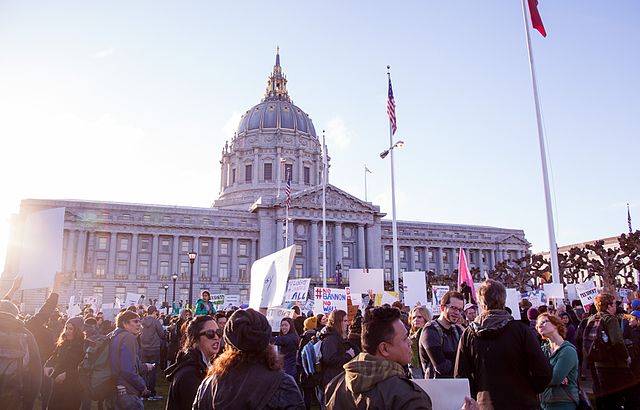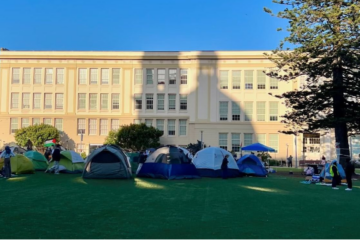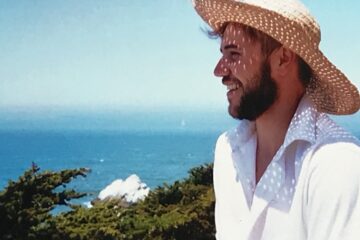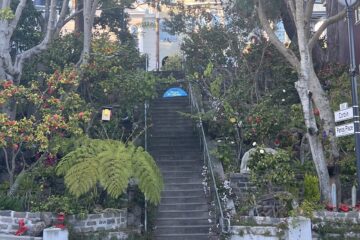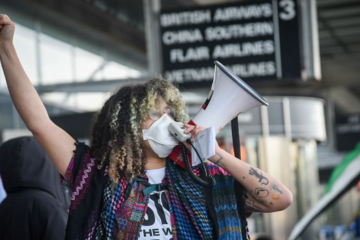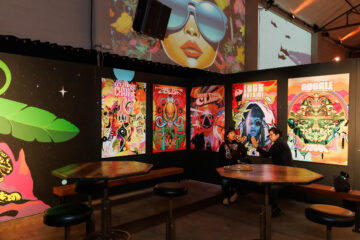Why San Francisco Politics Matter After All That
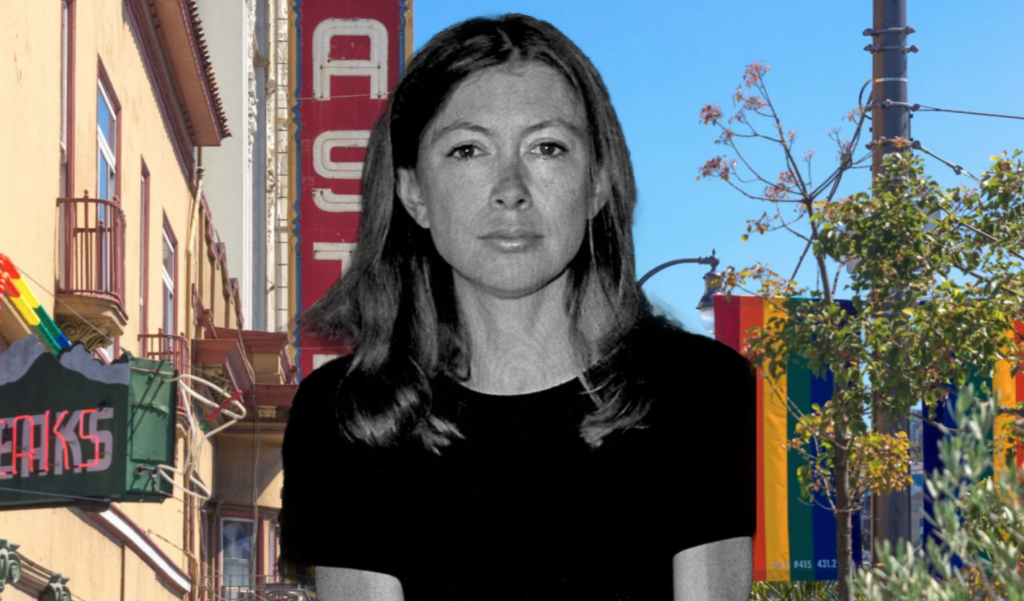
Joan Didion had all kinds of takes when it came to California. San Francisco received both her wrath and her praise. (Piotr Musioł, Kathleen Ballard, Los Angeles Times)
There’s a tense air in San Francisco. The city is readying for the Asia-Pacific Economic Cooperation (APEC) — a major international conference hosting President Joe Biden and General Secretary Xi Jinping alike — and erupting in demonstrations against the evolving humanitarian crisis in Gaza, raised to a fever pitch by Israel’s clear-cutting of the area since October 7. It may be late summer in San Francisco, but a new slump has descended on residents as a natural result of longstanding resentments and frustrations.
Thankfully there’s Joan Didion, the narrative journalism pioneer and California scion. She seemed to understand San Francisco had many sides, covering the hippie movement in all its grit and glory in Slouching Towards Bethlehem while showing her moneyed conservative side as she covered San Francisco State University activists and second-wave feminists in The White Album.
When she wrote “all that,” she referenced leaving the East Coast to return to California. When I write “all that,” I mean the the San Francisco Bay Area’s important history in the United States’s relationship to activism and movement building. And I mean to say that continuing that legacy now matters, despite a new set of challenges.
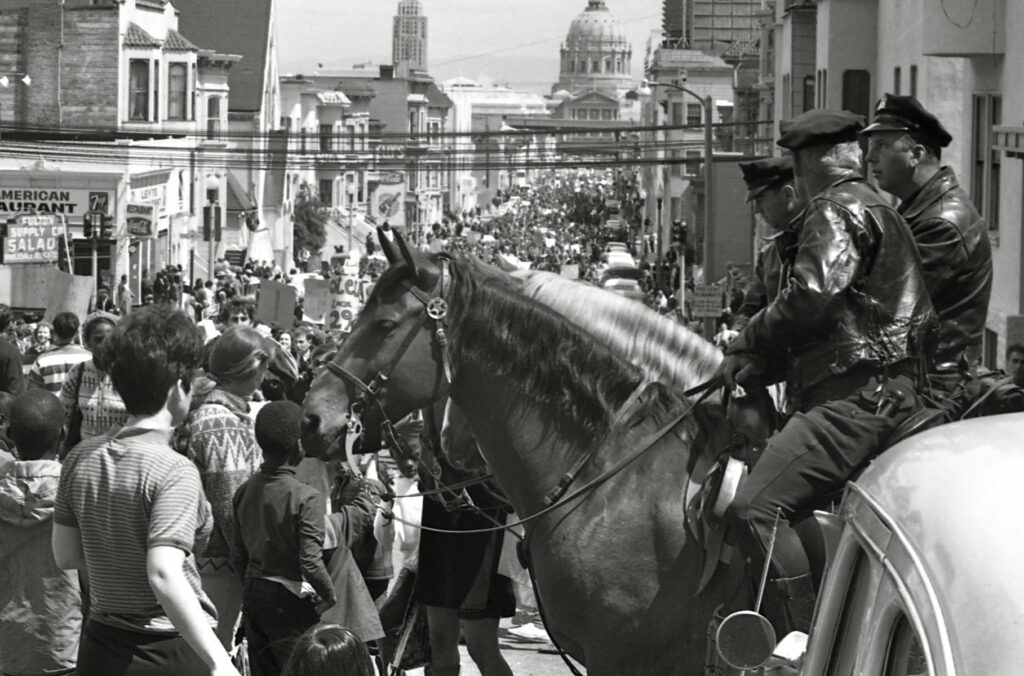
George Garrigues took this photo of mounted policemen patrolling an anti-Vietnam War protest in 1967. (George Garrigues)
Local Journalism for Working stiffs
We write for the poets, busboys, and bartenders. We cover workers, not ‘tech’, not the shiny ‘forbes 100 bullshit’. We write about the business on your corner and the beer in your hand. Join the Bay's best newsletter.
Take just a few examples of protest and their beautiful outcomes in our Baghdad by the Bay. When city supervisor Harvey Milk was slain, the city itself seemed to shake. Many of his friends and constituents gathered on the steps of city hall to demand action against his killer, a former firefighter and fellow supervisor, singing dirges in his honor. Thus the first 115 members of the San Francisco Gay Men’s Chorus performed their first show; in fall 2023, that same chorus opened the nation’s first national queer performance and community space in American history.
Protest runs even deeper in the city. There were the Diggers in 1966, an offshoot of the hippie crowd that opened free stores and mess halls to protest a growing wealth divide and neoliberal policies. There’s Oakland’s Black Panther Party, a group needing no introduction. To drive the point home, though, the BPP was founded in many ways as opposition to national disenfranchisement, mass incarceration, and extrajudicial police killings. And Chris Hedges reminds us in his book War Is A Force That Gives Us Meaning of Democratic house representative Barbara Lee from Berkeley, the only voting member in 2001 to vote against the authorization of use of force in Iraq.
Compare the area’s rich history of sticking up for important, at-times fringe causes to the difficult conversations happening around the invasion of Gaza by Israel. Didion would have a lot to write about as huge American and Israel flags wave in downtown, a blatant disregard to yet another overcorrection by military states to make harm and pain even more harmful and painful. If only there wasn’t so much money to be made in killing — as there was following 9/11 — a voice like Lee’s might be able to prevent more bloodshed once again.
That’s why the area’s politics matter despite and because of “all that.” In the East Bay vegan pop-up Mishmish showcases the beautiful cuisine of Palestine. In the city Medicine for Nightmares will host Poets for Palestine on November 7 to raise funds for bomb relief and the countless displaced. And, rightfully, thousands take to the streets to counter that colonial flag-waving with resistant banners of their own.
Didion had lots of bad takes about San Francisco alongside many good ones. Through it all she managed to recognize that the city and Bay Area at large refuses to be complacent in the face of oppression. I’ve already written about getting off your ass to do something with what you’ve got and how to distinguish propaganda from fact. If this is a letter of encouragement to San Francisco, then let it be one co-signed by another observer asking for remembrance of all that came before and, optimistically, all that lies ahead.

Howdy! My name is Katy Atchison and I'm an Associate Editor for Broke-Ass Stuart.
I want to take the time to say thank you for supporting independent news media by reading BrokeAssstuart.com. Supporting independent news sources like Broke-Ass Stuart is vital to supporting our community because it amplifies the voices of a wide variety of diverse opinions. You also help support small businesses and local artists by sharing stories from Broke-Ass Stuart.
Because you're one of our supporters, I wanted to send over a pro-tip.
Our bi-weekly newsletter is a great way to get round ups of Broke-Ass Stuart stories, learn about new businesses in The Bay Area, find out about fun local events and be first in line for giveaways.
If you’d like to get our newsletter, signup right here, it takes 5 seconds.


